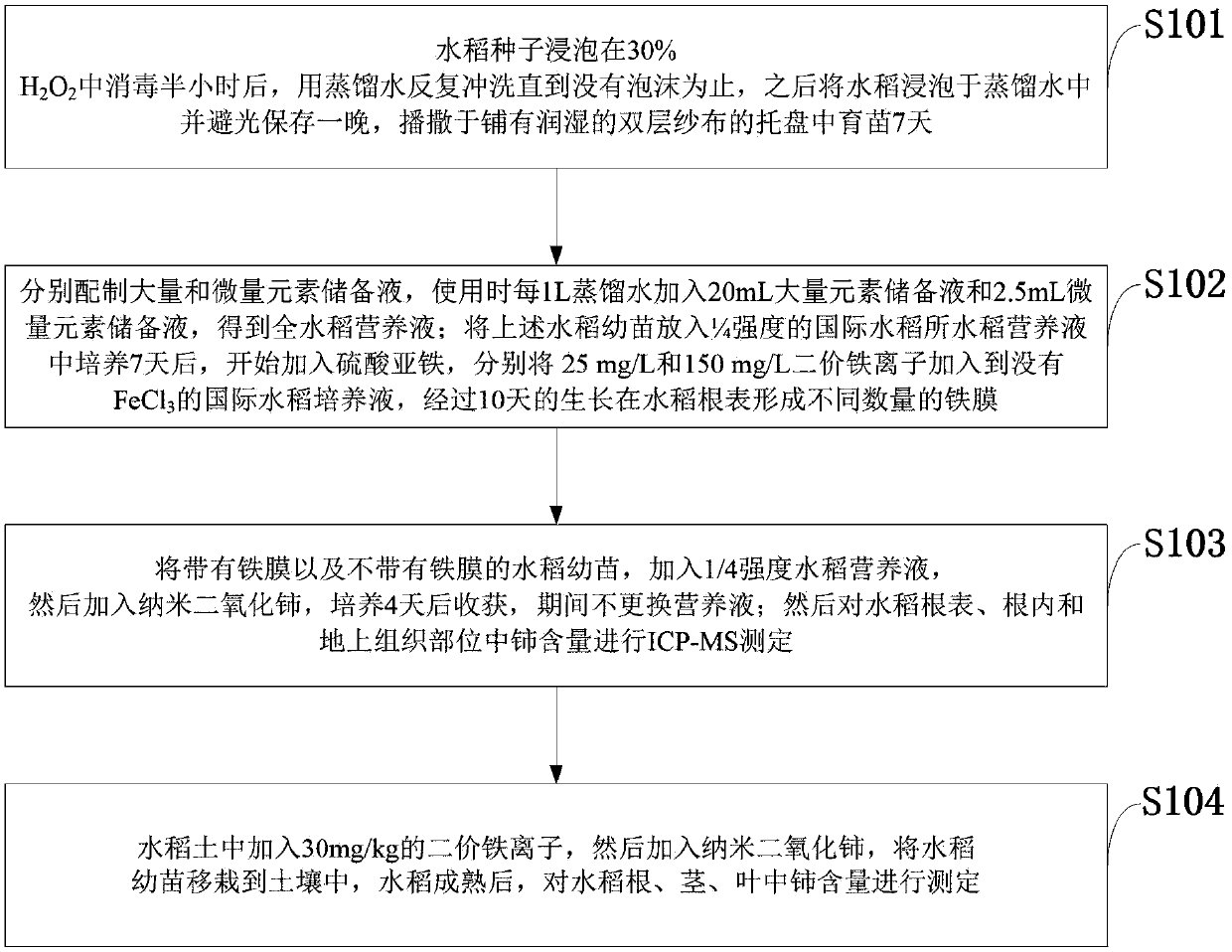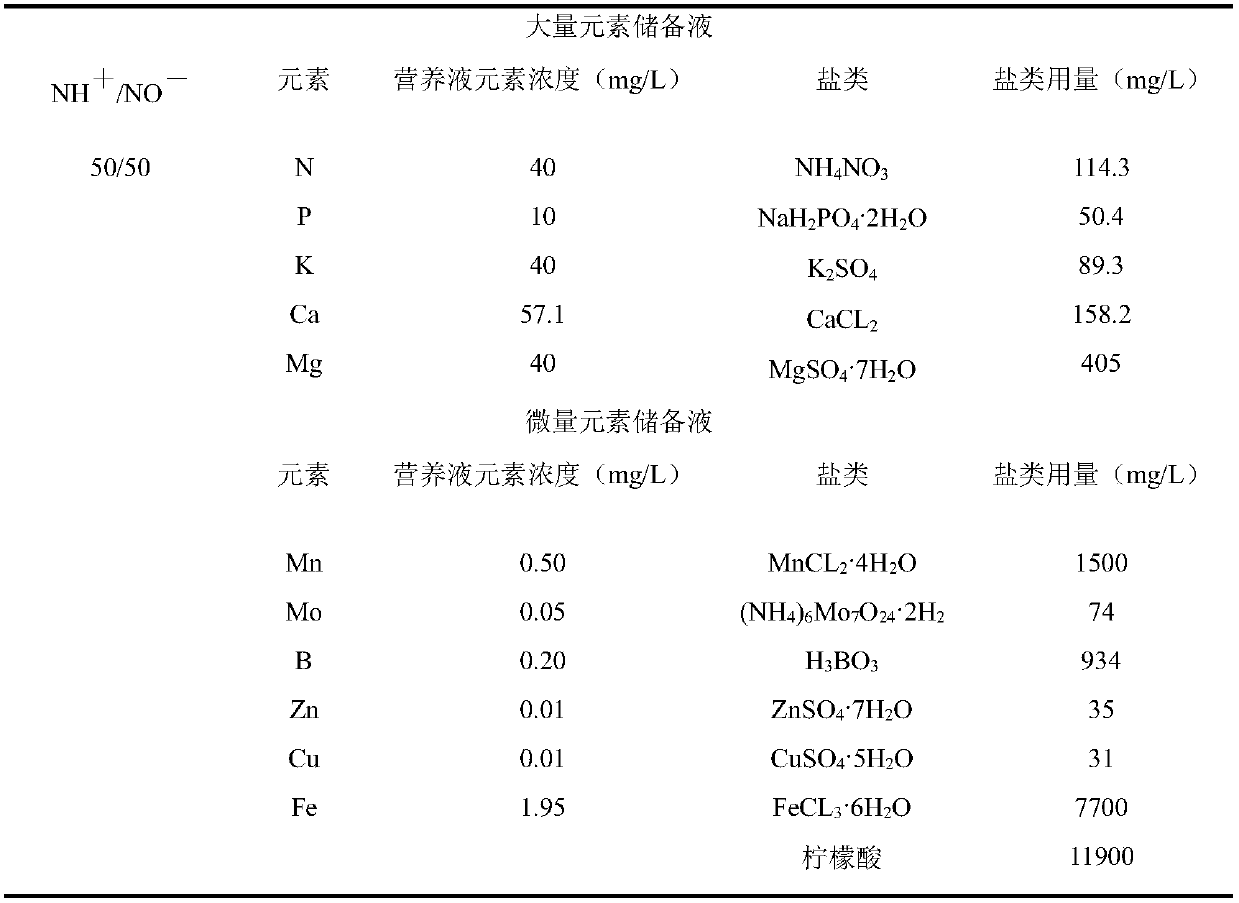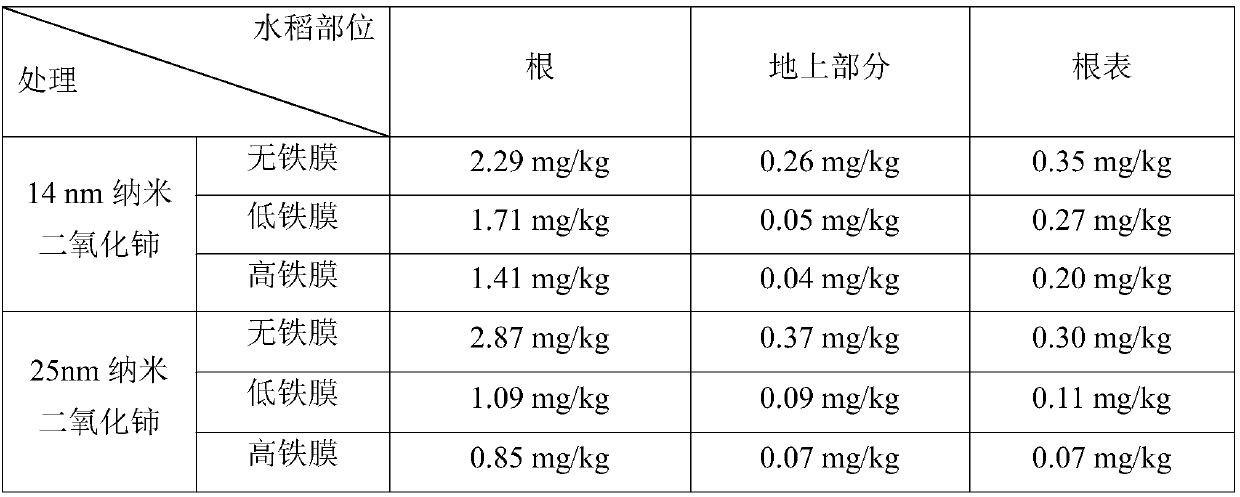Method for reducing accumulated nanometer ceric oxide in rice seedlings
A nano-cerium dioxide and rice technology, applied in the field of environmental analysis, to achieve good innovation, excellent resistance and control effect, and enhanced resistance and control effect
Pending Publication Date: 2019-04-05
NANKAI UNIV
View PDF0 Cites 1 Cited by
- Summary
- Abstract
- Description
- Claims
- Application Information
AI Technical Summary
Problems solved by technology
Method used
the structure of the environmentally friendly knitted fabric provided by the present invention; figure 2 Flow chart of the yarn wrapping machine for environmentally friendly knitted fabrics and storage devices; image 3 Is the parameter map of the yarn covering machine
View moreImage
Smart Image Click on the blue labels to locate them in the text.
Smart ImageViewing Examples
Examples
Experimental program
Comparison scheme
Effect test
Embodiment 1
[0025] (1) Rice seedling cultivation
the structure of the environmentally friendly knitted fabric provided by the present invention; figure 2 Flow chart of the yarn wrapping machine for environmentally friendly knitted fabrics and storage devices; image 3 Is the parameter map of the yarn covering machine
Login to View More PUM
 Login to View More
Login to View More Abstract
The invention belongs to the technical field of environmental analysis, and discloses a method for reducing accumulated nanometer ceric oxide in rice seedlings. According to the method, divalent ironions are added into an external source to generate ferric oxide coatings on root surfaces of rice through induction to stop the nanometer ceric oxide from accumulation in the rice. The physiology feature that the rice forms the root surface ferric oxide coatings in a rich-iron environment is used, along with forming of the ferric oxide coating, absorbing and accumulation of the nanometer ceric oxide on the root surfaces and root interiors of the rice and overground tissue parts are repelled, a scientific and effective stopping and controlling technology is provided when pollution of the nanometer ceric oxide in actual agricultural production in the future, and the risks caused by exposing of the nanometer ceric oxide to human health are reduced. The stopping and controlling effect of rootsurface ferric oxide coatings on large-grain size nanometer ceric oxide is better than that on small-grain size nanometer ceric oxide. The effect that the divalent iron is added into the external source to form the root surface ferric oxide coatings through induction, and accordingly absorbing and accumulating of nanometer ceric oxide are stopped and controlled is also verified in soil culture experiments.
Description
technical field [0001] The invention belongs to the technical field of environmental analysis, and in particular relates to a method for reducing the absorption and accumulation of nanometer ceria in rice seedlings. Background technique [0002] At present, the existing technology commonly used in the industry is this: nano ceria (CeO 2 ) has been widely used in production practice, including polishing materials, glass additives, diesel catalysts, personal care products in daily life, and solid-state fuel cells in the automotive industry, etc. With its wide application, most nano ceria will eventually be discharged as waste, resulting in the pollution of nano ceria in environmental media. Since plants are the basis of the entire food chain, especially the nanomaterials accumulated in crops will not only affect their own growth, but also pose a threat to the environment and human health through the food chain. When nanomaterials are released into the environment, nanocerium...
Claims
the structure of the environmentally friendly knitted fabric provided by the present invention; figure 2 Flow chart of the yarn wrapping machine for environmentally friendly knitted fabrics and storage devices; image 3 Is the parameter map of the yarn covering machine
Login to View More Application Information
Patent Timeline
 Login to View More
Login to View More IPC IPC(8): A01G22/22A01G7/06
CPCA01G7/06A01G22/22
Inventor 鲍艳宇刘维涛潘成荣
Owner NANKAI UNIV
Features
- R&D
- Intellectual Property
- Life Sciences
- Materials
- Tech Scout
Why Patsnap Eureka
- Unparalleled Data Quality
- Higher Quality Content
- 60% Fewer Hallucinations
Social media
Patsnap Eureka Blog
Learn More Browse by: Latest US Patents, China's latest patents, Technical Efficacy Thesaurus, Application Domain, Technology Topic, Popular Technical Reports.
© 2025 PatSnap. All rights reserved.Legal|Privacy policy|Modern Slavery Act Transparency Statement|Sitemap|About US| Contact US: help@patsnap.com



